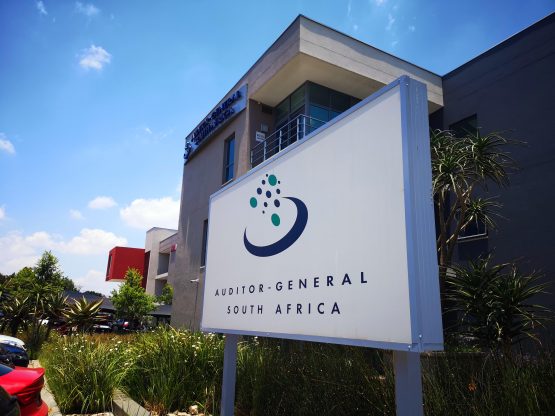Bringing in Governance

THEMBELANI MAPHANGA
Expert: ICT Governance, Risk and Compliance Management Consultant at Dirang Bohle
Critical elements of good governance are participation, accountability, transparency, rule of law, responsiveness, efficiency and effectiveness, equity, consensus orientation and strategic visioning. As we gradually develop as a nation, we will reach a stage where we will be measuring our organisational performance against all of these elements. Over the years, institutions have measured performance based on the sterling work of the Office of the Auditor General (AG), whose mandate has been the auditing of financial statements, and performance against predetermined objectives.
AG is a critical stakeholder as it is the final assurance provider. The other critical role players within our institutions are management, compliance and risk management officers, internal auditors, audit committees, and council committees. These role players have a collective responsibility for good governance.
In 2009, Local Government performed and internal assessment and identified a number of weaknesses. These included poor performance on leadership and governance, lack of accountability, poor financial management; underperformance in service delivery, and inadequate human resource capital. A Local Government Turn-around Strategy (LGTAS) was developed and adopted in November of that year.
In the same year, the Minister of COGTA had briefed the Parliamentary Committee on COGTA on the strategy planned to deal with negative audit findings and strengthening of internal controls. The project was called Operation Clean Administration (OCA) to support municipalities drive for clean administration by 2011.
In a presentation to the Standing Committee on Auditor General on 17 March 2017, the AG again identified poor governance, lack of sound financial management, lack of accountability and lack of consequence management as the root cause for poor audit performance. During this period government started a process to amend the Public Audit Act which was effected in 2018.
In July 2020, Mr Kimi Makwetu, the Auditor General released an Annual Audit report which painted a very bleak picture on the performance of local government institutions. The report identified poor governance and accountability as the root cause and these were the same findings that were identified in 2009.
Of great concern is the fact that at different times government assessed itself, identified its weaknesses and developed interventions that unfortunately failed to produce the desired results.
In 2017, parliament had an opportunity to review the performance of public institutions and make comprehensive recommendations. Objectives, successes and failures of previous attempts to fix the challenges e.g. LGTAS and OCA, could have been used to develop a comprehensive strategy to turn around the situation, however the opportunity was missed and only the role of external audit was reviewed.
In addressing these challenges government needs to develop a comprehensive plan that will target all the key functions within local government.
The review process should look at the following functions:
- The role and strength of both political and administrative management and oversight: These are functions that are responsible for defining the vision and goals; leading the implementation and mitigating municipal risks; providing strategic leadership and oversight to the institutions; development and implementation of policies and procedures; and lastly the development implementation and oversight of the body of effective and reliable internal controls.
- The role and strength of internal governance functions: These are specialist functions in areas like corporate governance, compliance management, legal, risk and quality management, and ICT. These functions support both the political leadership, senior and line managers review and monitor the
effectiveness and efficiency of internal controls to mitigate organisational risks and strengthen controls.
- The role of the independent assurance function: These are the difference assurance provides led by internal audit and the audit committee that support council and senior management with independent internal control reviews.
These critical functions drive the five-year Integrated Development Plans (IDP) and they sit at the
centre of municipalities. Understanding their limitations and challenges and providing intervention at that level may assist in influencing both the individual behaviour and the organisational culture. Not reviewing and strengthening these functions may delay the achievement of the objectives of parliament when they amended the PAA.
The review process may focus on:
- The effectiveness of the current configuration and capacity requirements for effective leadership and oversight. Some questions that may be asked include:
- Are our members of the Standing Committees empowered enough to provide strategic direction and oversight?
- Are they provided with necessary tools and information to drive Good Governance, strong
financial management, accountability and consequence management?
- Have the oversight committee received training on different legislations and has the municipalities developed the necessary compliance frameworks and calendars?

- How new technologies and business process automation can be integrated into management and oversight in local government. Some questions that may be asked include:
- Has the organisation identified and automated critical business processes?
- Does the technology analyse and track and report on possible activities of non- compliance?
- How long does it take for non-compliance to be reported to the executive and oversight structures?
- Building on Integrated Governance Risk and Compliance Management framework directly linked to the new approaches like Control Self-assessment, Enterprise Design Thinking, Lean and Agile approach and lastly Devops. Some questions that may be asked include:
- Has the organisation adopted any of the new management approaches used by learning organisation?
- Consider establishing an integrated reporting framework that is not only limited to finance and performance but also consider other elements of good governance as detailed above. In reporting these institutions should also look at social and environmental impact that local government has within the areas that they operate in.
Some of the benefits of strengthening these functions include the following:
- Improved coverage of risks and controls: by identifying and refining where necessary the population of risks
and controls,
and appropriately allocating the ownership and performance of these risks and controls across the lines of defence.
- Improved control culture across the organisation by enhancing the understanding of risks and controls. and
- Improved reporting to Council and Executive Management through a coordinated approach to providing timely and insightful reporting avoiding potentially duplicative and irrelevant information.
Local government is at the coalface of service delivery. Its success or failure impacts every member of society.
We need to empower all role players in local government so that it delivers on the
5 constitutional mandates (a) to provide democratic and accountable government for local communities; (b) to ensure the provision of services to communities in a sustainable manner; (c) to promote social and economic development; (d) to promote a safe and healthy environment; and (e) to encourage the involvement of communities and community organisations in the matters of local government.
We need to strengthen our strategic thinking and practices of governance in order to promote well-being, social justice, equality and active engagement between our society and government.




